'Curated retail' stores are proving popular, but many face high rents
As Hong Kong's shopping malls evolve into small cities, compact, design-led 'curated retail' outlets areon the rise, writes Abid Rahman
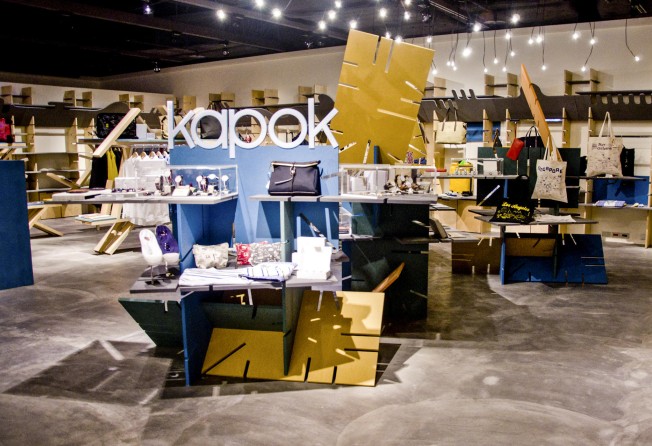
Hong Kong's position as one of the world's top shopping destinations is rarely questioned and, with the rapacious development of more retail space, the city's place in the front rank alongside London, New York and Paris is unlikely to be threatened soon.
In a city that owes its retail dominance to dozens of conventional shopping malls, it is strange to think of Hong Kong as a pioneer. However, against the odds, one niche area of retail in Hong Kong is beginning to thrive and export its model to other Asian cities.
Curated retail, design-led shops, and edited showrooms are some of the ways retailers describe the growing phenomenon of multibrand stores that push independent labels from around the world.
"I like the term 'select shop'," says Arnault Castel, founder of Kapok, one of the best examples of this new trend in fashion and design retail, not just in Hong Kong, but globally.
"A select shop is a group of people who have a certain aesthetic and philosophy, and they choose the products to fit that, adding their personal touch. They have categories like clothes and accessories, and even food," says Castel.
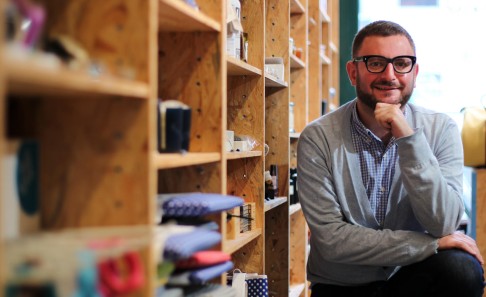
Established in 2006, Kapok has boomed in the past two years, and is rapidly expanding its retail footprint.
"We have five locations in Hong Kong, and we are opening a sixth one in PMQ. Then there is a new store in Taiwan, and two in Singapore," says Castel.
Kapok is reaping the benefits of Hong Kong consumers' changing attitudes to luxury, says Castel, a shift that has led people to seek out niche brands.
"I opened Kapok because I was bored with the malls, the bigger brands. I'm not the only one, as a lot of people here think like that," he says. "If you look at the luxury industry, you see the scale of it; it's not real luxury, it's mass market with an expensive price tag. There's nothing exclusive. Real luxury is a luxury of information, of discovery, of only a few people knowing the secret of a particular brand.
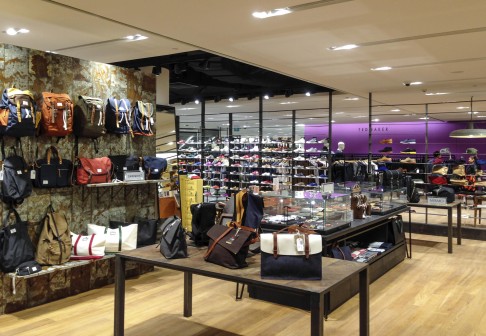
"That's why we say 'what is your Konzepp?' That's our tagline, it's not about us, it's about you," says Geoff Tsui, co-founder and CEO of Konzepp, another Hong Kong store that has struck a chord with locals and is now taking its formula into other Asian capitals.
"We looked at the retail experience, the fashion experience, the product design experience - what makes a business. We thought, let's erase all those rules and do something different," says Tsui, who created Konzepp with noted Hong Kong movie agent Willie Chan to push small local and international design talent - a departure from the bottom-line-driven nature of Hong Kong retail.
Tsui says that the idea behind Konzepp grew from his own frustrating experience as an industrial designer. "My parents weren't happy at all, but I'm stubborn. I said I am going to do something creative and I am going to push something creative. I want every Asian parent to think it's OK for their kids to do something creative. And that is what Konzepp is all about," says Tsui.
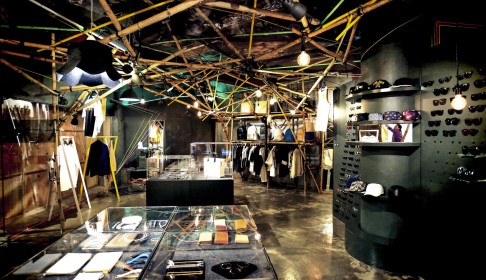
From its original location in Tung Street in Sheung Wan, Konzepp has recently opened a three-month pop-up in the Landmark Atrium, just the latest development in a hectic nine months that has seen the company open stores in Jakarta and Singapore.
It has also started construction on a second space on Tung Street that Tsui says will become a gallery for illustrators, artists and photographers, further stretching what the concept of retail is in Asia.
"We don't bracket ourselves. People call us a shop, but I see us as a platform, a hub," says Tsui, adding almost as an afterthought: "Profit isn't our primary motive."
The rise of multibrand curated retail is a global phenomenon, and the model laid down by the likes of Colette in Paris, Corso Como in Milan and Dover Street Market in London tweaked and adapted to cities all over the world.
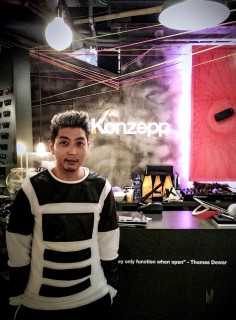
"It was a dream for me to create a Colette or a Corso Como-type flagship in Hong Kong, where we would show you our universe. But several times in our history, we have been hit with massive rent increases.
"The rent was doubled on one of our stores a few years ago, and it's happening right now on another one, where they are asking for an 80 per cent rent increase," Castel says.
Kapok's survival, Castel says, is built on growth to meet demand but also to spread the risk of rent rises.
"If we have one store, and suddenly we get a 100 per cent increase in rent, then that's it, we're dead. It's finished. So that's why we want to have several locations, so when, not if, a rent situation gets crazy for one store, we have a network of other stores as a cushion," he says.
International expansion for Kapok and Konzepp illustrates the problems innovative retail concepts face here. Cities such as Taipei and Singapore offer cheaper rents and huge spaces that allow retailers to offer a full range of products.
For now, despite the best efforts of local landlords, consumer demand for niche brands from stories that resonate with them means that stores like Kapok and Konzepp will probably continue to thrive.
"It's a trend that will definitely continue as more and more people get access to information. I think the days of 'I want to dress like a celebrity' are gone. Today it's about 'This is my style, my story'," says Tsui.